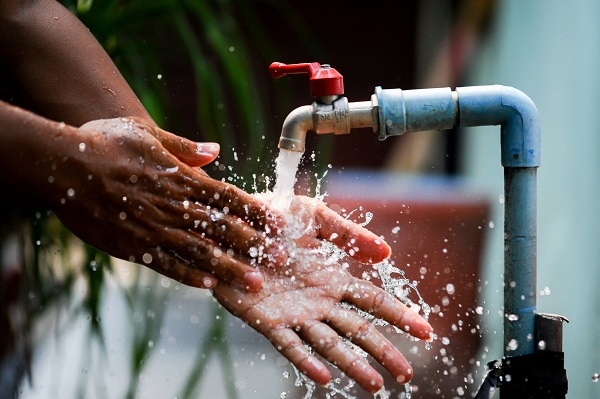The Ghana Water Limited (GWL) in the Central Region has announced a steady improvement in the production and supply of treated water, promising to mitigate water scarcity in many parts of the region.
For several months, many towns and communities in the region have endured acute water shortages, forcing residents, including students, to trek long distances in search of water, with some resorting to unclean sources.
The situation worsened with the outbreak of cholera, which has so far claimed 19 lives, with 3,028 suspected cases and 260 confirmed cases in the region.
John Eric Kwofie, the Regional Manager of GWL, assured in an interview with the Ghana News Agency that the situation was improving and urged residents to expect water in their homes soon.
Kwofie explained that the dams in Essiakyer, Baifikrom, Breman Asikuma, and other locations had virtually dried up for many months due to severe drought.
The challenge was exacerbated by activities such as illegal mining, farming, and road and building construction, which choked the rivers with heavy silt, increased turbidity, and polluted them with agrochemicals.
As a result, production fell far below the expected capacity, and costs rose due to the poor state of the raw water.
As recently as January and February this year, pictures taken at the various dams showed extremely low water levels in a highly polluted state.
The Regional Manager, however, indicated that they were now receiving increased inflows into their reservoirs and were producing more water, albeit in limited quantities, for the affected communities.
“Now, we are receiving more rains from the Eastern Region, and whenever it rains there, we get enough inflows into the affected systems. As a result, we are now receiving more raw water.
“I must admit that we are not yet at full production at these stations, and it will take some time for the situation to normalize across all the affected areas,” he said.
“We are hoping that within the next two weeks, if we get enough inflows and a reliable power supply, we should be fine. The rains have started, and I’m confident that within the next two to three weeks, the situation should improve,” he added.
Kwofie noted that water was still being rationed, even though the situation had slightly improved, and cautioned residents to use water prudently.
He advised customers to refrain from using the limited treated water for watering lawns or washing vehicles, as it could affect supply in the affected areas. He emphasized that if water was managed well, the community would be able to endure the situation until the GWL fully recovered.


